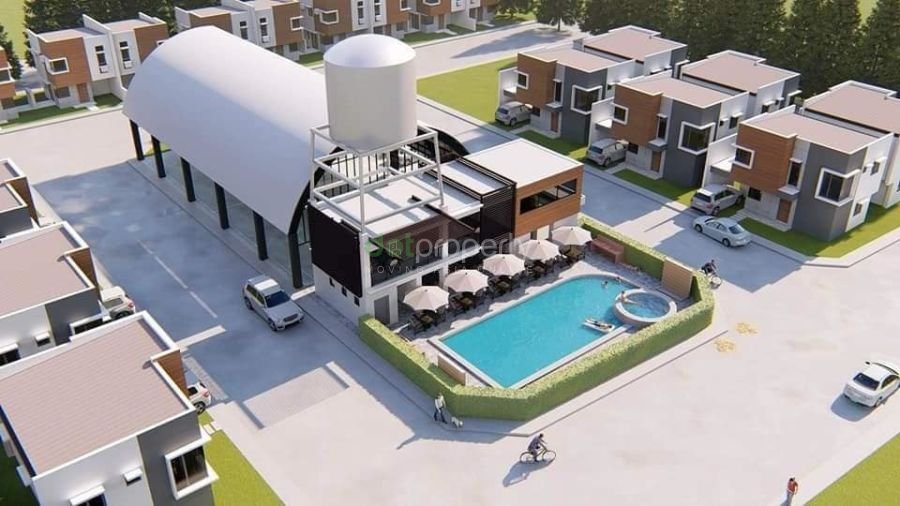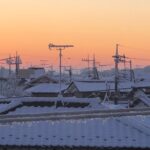
Last year, I bought a piece of land in Pinamagajan, Cebu, my wife's hometown.
The distance from the center of Cebu City is 55 km, about 1 hour and 20 minutes by car, and Negros Island is on the other side of the sea.
The area is dotted with houses, but there are palm trees and cornfields, no tall buildings, and you have to go to Toledo City to find a supermarket.
So the cost of land is considerably cheaper than in Cebu City, but I am concerned about the price of housing in Cebu Island since I think I will be building a house in the future.
So I signed up for a website that sells houses in the Philippines and got emails about houses for sale, but they are quite expensive.
Housing prices in the Manila metropolitan area are comparable to those in regional cities in Japan, and looking at Japanese blogs and the like, it seems that prices have risen considerably over the past few years.

The image above is a house for sale in the subdivision of Liloan San Vicente, near Cebu City. The land is 120 square meters and the two-story building has a total floor area of 168 square meters.
The price was 6.3 million Philippine pesos, including tax, for a location just a 10-minute drive to a shopping mall. The price is 6.3 million Philippine pesos including tax, which is 13.86 million yen in Japanese yen, not cheap at all.
Since it's a subdivision, there's going to be a separate management fee, and they're going to need to pay for water and electricity separately.
In addition, a car is a necessity, and if you add the cost of buying furniture and electrical appliances, it will be quite expensive.
As Japan's population will continue to decrease, land and housing are becoming cheaper except in urban areas, while on the other hand, the Philippines will become more expensive.
Housing in the Philippines may not look bad, but there is a lot of shoddy construction.
This is true not only for single-family houses but also for condominiums, the quality of which is incomparably worse than in Japan.
My wife's cousin bought a nice subdivision house near the Cebu airport with her Swiss husband and they are living there, but she was complaining that the plumbing is not good and they are having a hard time with water leaks.
Reading blogs of Japanese people who have built houses in the Philippines, it seems that the best way to build a house is to work with a Filipino carpenter, who is also present at the purchase of materials and construction.
I heard that if you manage the construction yourself, you can control the quality and also know the structure of the house in case you need to repair it later.
I want to build a house without wasting money while ensuring quality, so when I build a house in Cebu, I will also be in charge of construction management.









